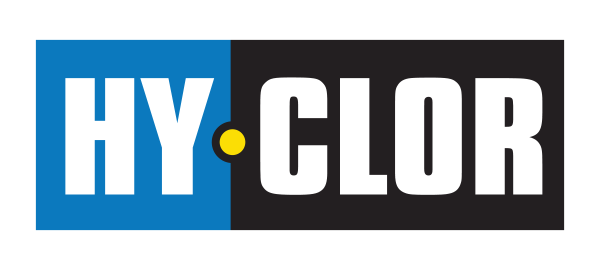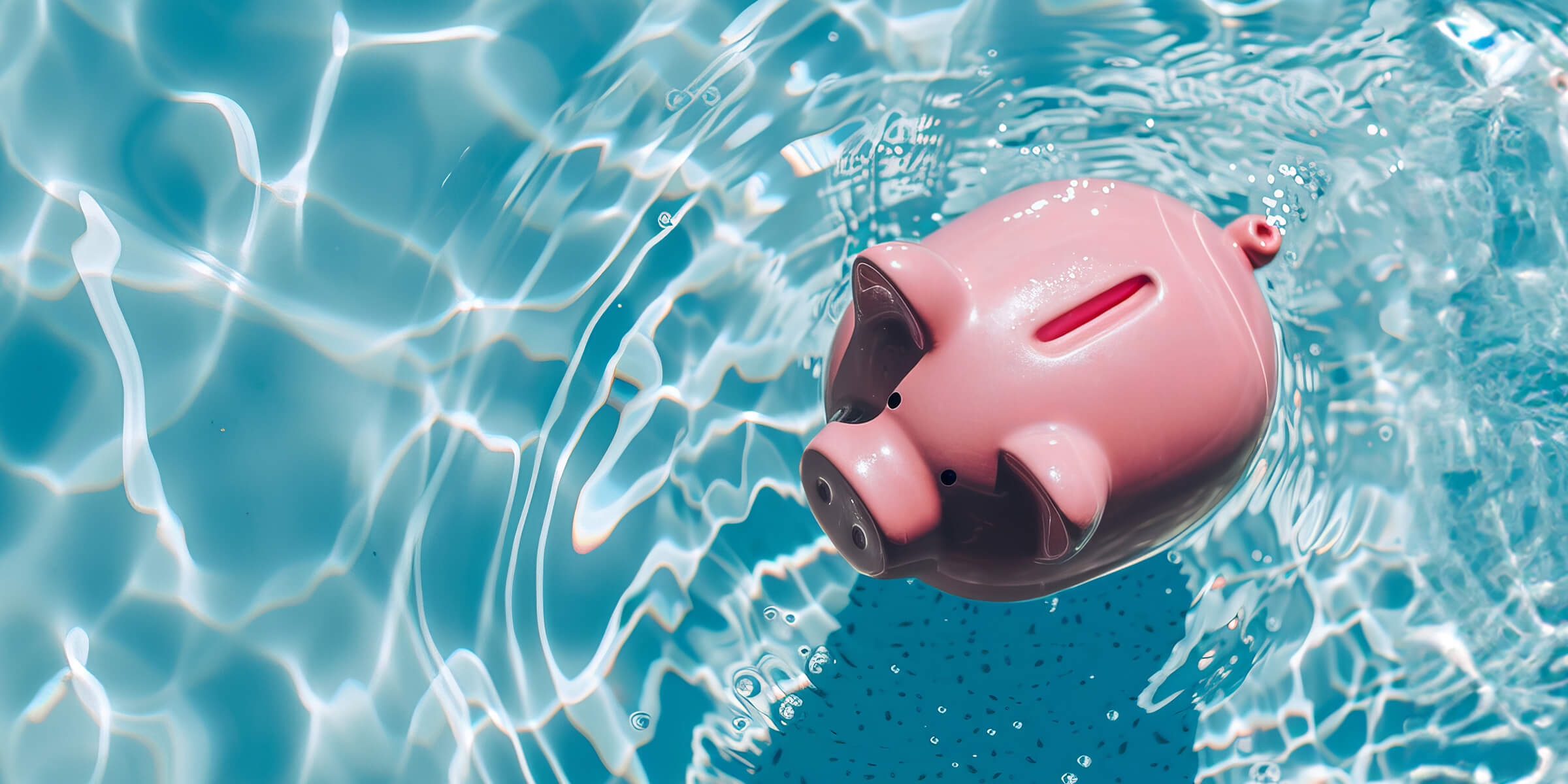Owning a pool is like having your own personal retreat, a place to relax, unwind, and maybe even perfect your cannonballs. But just like any retreat, it takes a little TLC to keep it sparkling. The good news?
This guide will reveal the factors that impact your swimming pool maintenance costs, including its size and type, the chemicals used, and the energy it consumes.
Plus, we’ll share clever hacks and product recommendations (Think Hy-Clor’s special touch!) to keep your wallet happy and your pool healthy.
So grab your floaties because we’re diving into the deep end of pool maintenance savings!
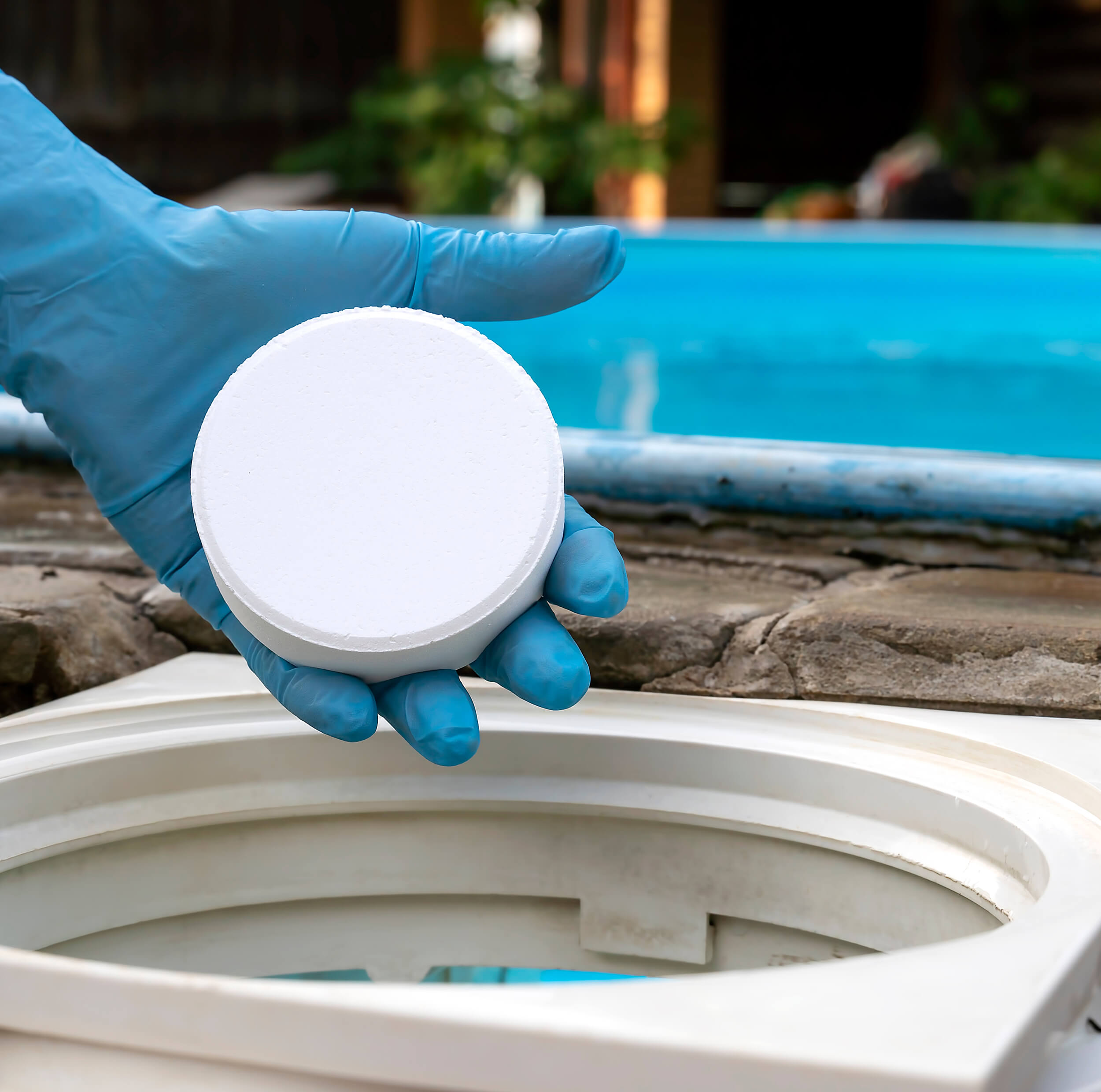
Chemical Checklist for First-Time Pool Owners
Congratulations on your new pool!
To keep the water crystal clear, you’ll need a few essential chemicals:
- Chlorine
- pH Balancer
- Algaecide
- Clarifier
First, test your water’s chlorine level, pH, and alkalinity with a pool test kit. Follow product label instructions for the correct amounts based on your pool size and test results.
Chlorine: Add granules, tablets, or liquid to your skimmer with the pump running.
pH Balancers: Pour the recommended amount near the return jets with the pump running.
Algaecide and Clarifier: Pour around the pool perimeter with the pump running.
Tips:
- Never mix chemicals directly.
- Wait 30 minutes after adding chemicals before swimming.
- Retest water after 24 hours and adjust as needed.
With this routine, your pool will stay sparkling and safe!
Seasonal Maintenance Costs
Here’s a breakdown of your pool’s upkeep cost associated with opening, closing, and winterising your pool, along with some top tips to save money and prevent long-term damage.
Spring (Opening):
- Costs: Expect to spend money on chemicals like shock treatment, algaecide, and chlorine to get your pool sparkling after its winter slumber. You might also need to replace filter media or restock your pool supplies.
- Savings Tip: During winter, keep your pool cover clean and secure to minimise debris build-up. This will save you time and money on cleaning come spring.
Summer (Maintaining):
- Costs: Regular chemical top-ups and potential adjustments based on pool usage are the main ongoing expenses.
- Savings Tip: Maintaining the correct balance in your pool is cheaper than correcting it.
Autumn (Closing):
- Costs: Winterising chemicals, pool cover, and potentially hiring a professional to close the pool are the main expenses.
- Savings Tip: With colder weather and little to no pool usage, you can reduce the run time of your pump and filter.
Bonus Tip: Performing regular cleaning throughout the season – skimming debris, brushing walls, and vacuuming the bottom – helps maintain a healthy pool and reduces the need for excessive chemicals, saving you money in the long run.
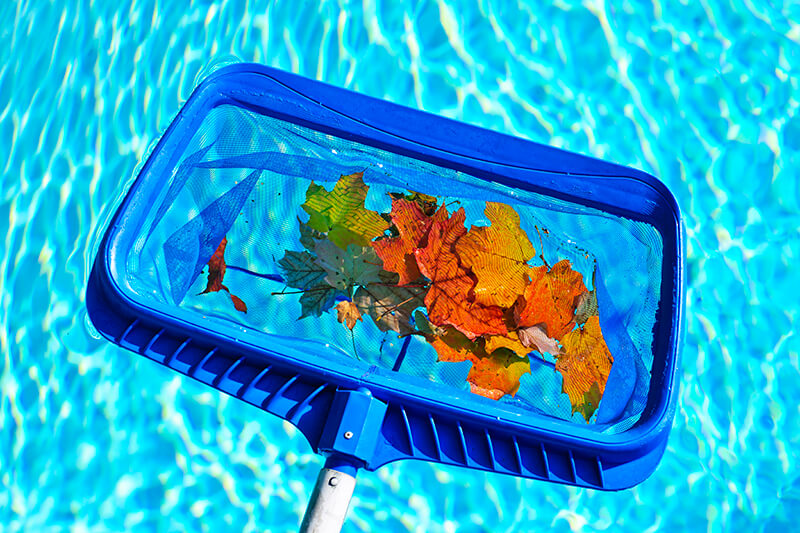
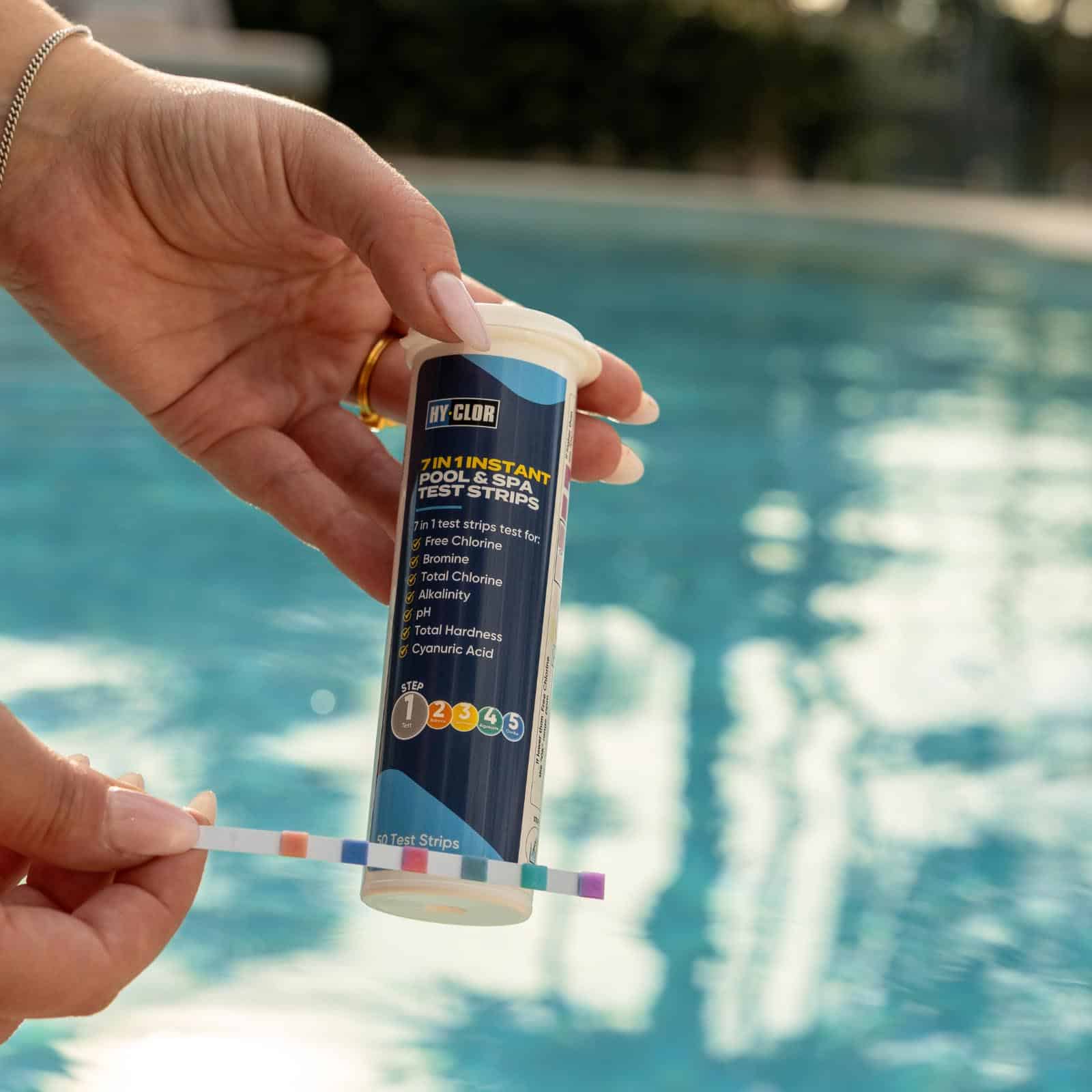
Chemical Costs, Test Strips, and Effective Usage
The average cost of pool chemicals can vary depending on factors like pool size, usage, and brand.
Here’s a ballpark figure for some essential chemicals:
- Chlorine: This disinfectant typically falls within a range of $10-$30 per kilo.
- pH Balancers: These can range from $15-$25 depending on the size and type.
- Algaecide: Expect to spend anywhere from $20-$50 for a good quality algaecide.
- Clarifier: These can cost around $15-$30 per bottle.
Test, Don’t Guess! Using the correct pool test strips is crucial for getting the most out of your chemicals.
Testing regularly (usually weekly) allows you to:
- Avoid Overspending: Testing your water allows you to know your exact chemical levels which ensures you avoid unnecessary additions, saving money.
- Maintain a Balanced Pool: Incorrect chemical levels can irritate eyes, damage equipment, and promote algae. Testing keeps your pool healthy.
At Hy-Clor, we understand the importance of getting the most out of your pool chemicals. That’s why we develop high-quality, concentrated formulas. A little goes a long way, reducing waste and saving you money over time.
Additionally, some Hy-Clor products, like our multi-functional tablets, combine multiple cleaning actions, minimising the number of chemicals you need to add.
Energy Costs Associated with Pool Maintenance
Let’s talk pool power! Heating, filtration, and circulation all use energy, impacting your bills.
Here’s how to keep your expenses down:
- Consider solar pool heating: This harnesses the sun’s rays to warm your pool naturally, reducing reliance on energy-guzzling electric heaters.
- Upgrade to a variable-speed pump: These adjust to filtration needs, using less energy than traditional single-speed pumps.
- Run your pump during off-peak hours: This can help you take advantage of lower electricity rates.
- Invest in a pool cover: By minimizing water evaporation, you also reduce the energy needed to keep your pool at the perfect temperature.
These simple tweaks can significantly reduce your pool’s energy consumption, saving you money in the long run.
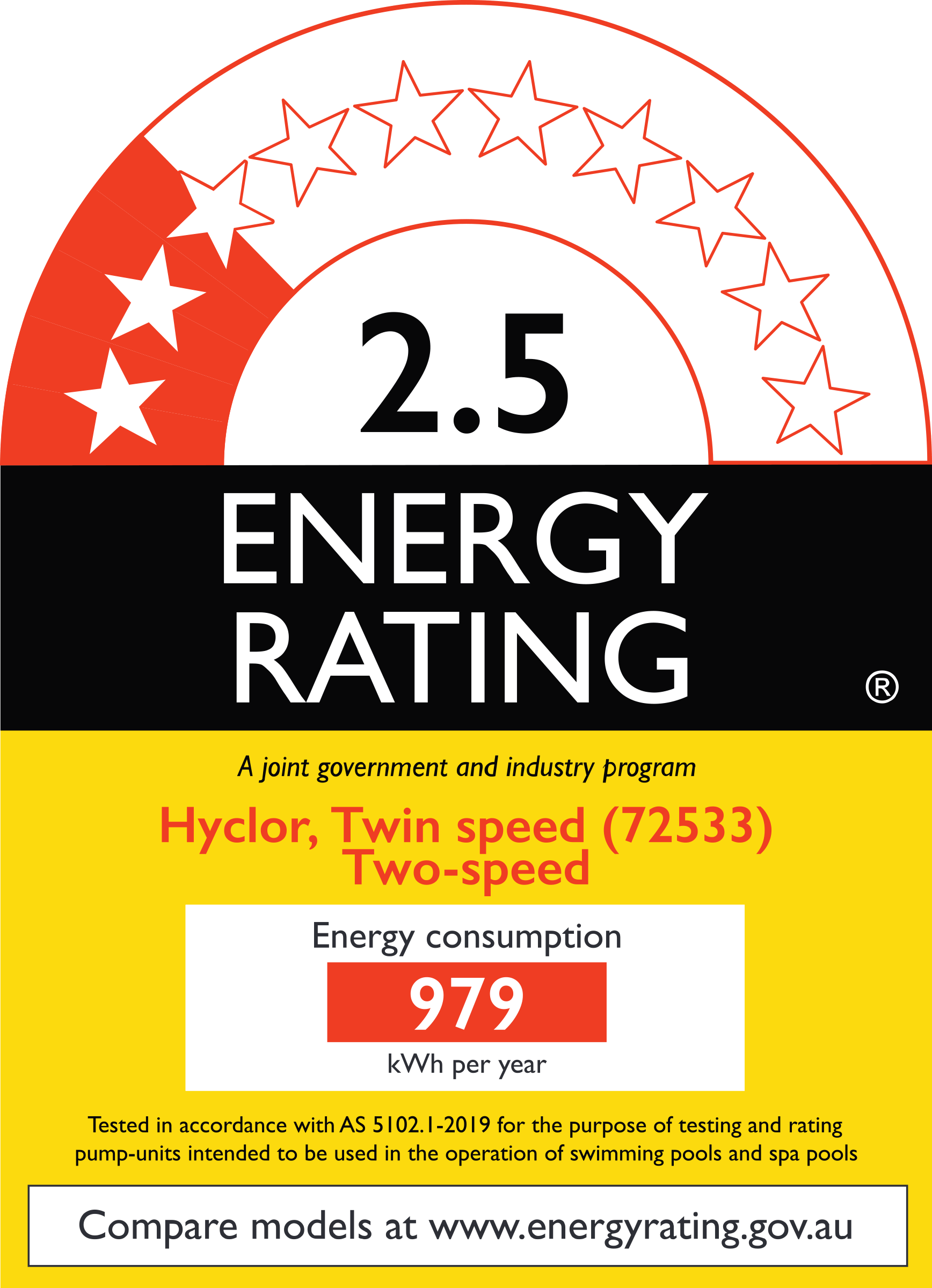
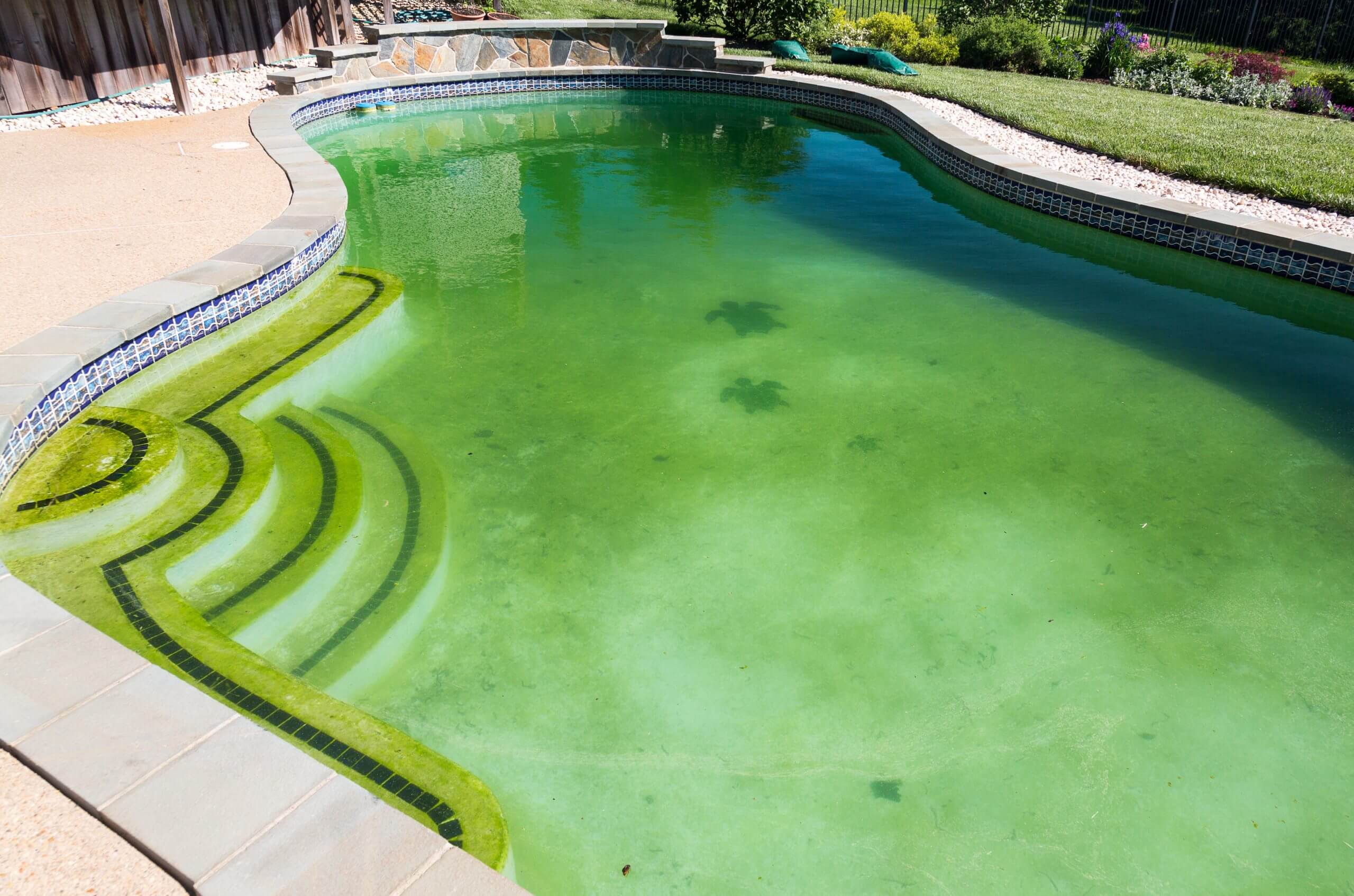
Unexpected Costs and How to Mitigate Them
Pool ownership isn’t all sunshine and rainbows. Sometimes, unexpected pool maintenance costs like repairs or leaks can pop up. But fear not!
Here’s how to be proactive:
- Regular maintenance: Checking equipment and maintaining proper chemical balance helps prevent minor issues from snowballing into expensive repairs.
- Invest in quality pool equipment: While it might have a higher upfront cost, reliable equipment is less likely to break down frequently, saving you money in the long run.
- Winterise properly: Skipping proper winterisation can lead to frozen pipes and cracked equipment come spring. Taking the time to do it right can prevent costly repairs down the track.
By being proactive and taking preventative measures, you can minimise the chances of unexpected pool expenses.
DIY Pool Maintenance to Cut Costs
Feeling handy?
Here are some DIY maintenance tasks to save you money:
- Skimming and Brushing: Regularly skimming debris and brushing the pool walls with a Hy-Clor pool brush helps maintain a clean pool and reduces the need for excessive chemicals.
- Vacuuming: Weekly vacuuming with a Hy-Clor vacuum cleaner removes dirt and debris from the pool floor, keeping your water sparkling.
- Testing and Balancing: Using a Hy-Clor test kit and following the instructions for adding Hy-Clor chemicals like pH increaser or decreaser allows you to maintain balanced pool water.
Remember, if you’re unsure about any DIY task, consult a pool professional. But with a little know-how and the right Hy-Clor products, you can become your pool’s very own maintenance whiz!
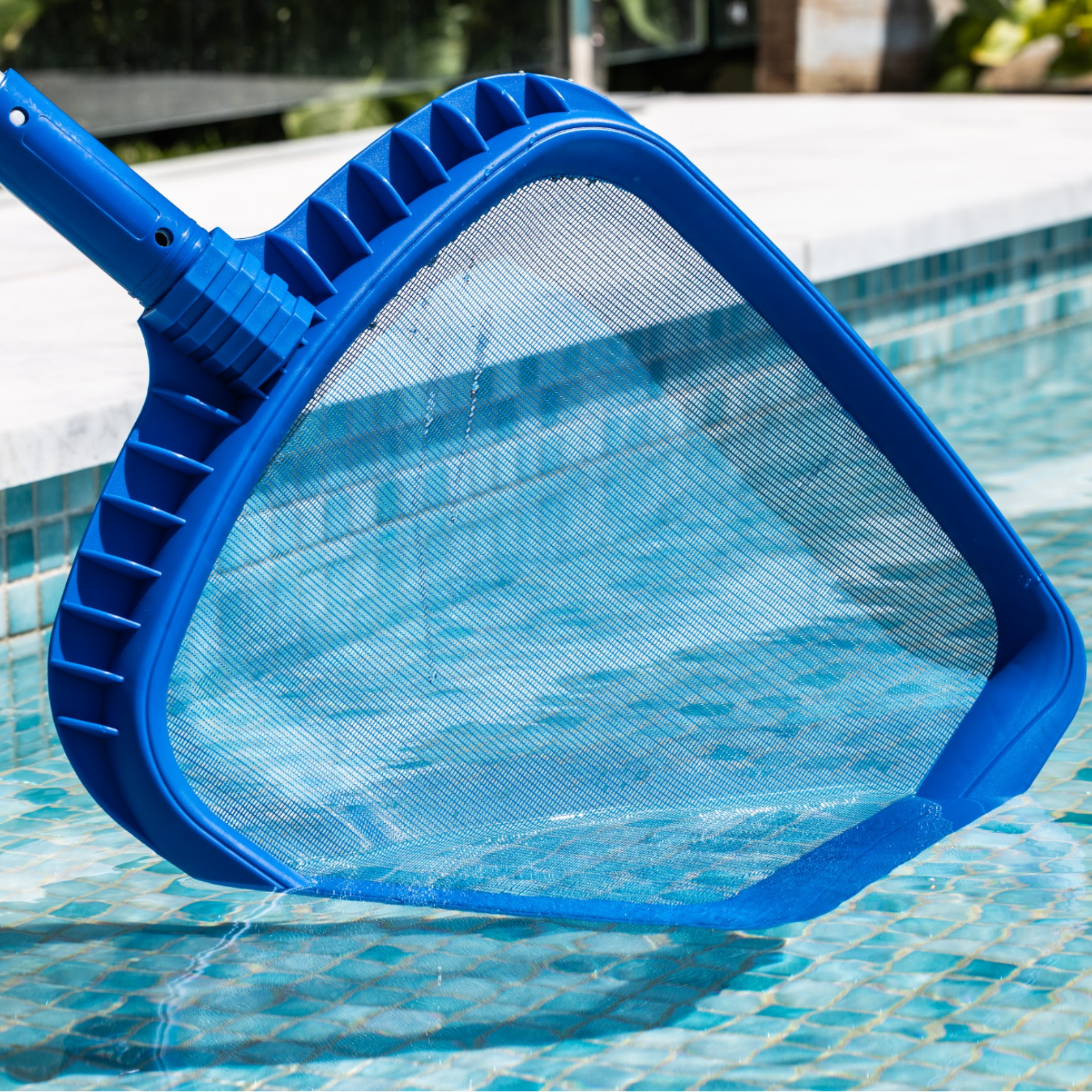
FAQs About Pool Maintenance Costs
The size and type of pool influences maintenance requirements; larger pools need more chemicals, equipment, and time. Additionally, climate and weather are crucial factors; hotter climates often require extra chemicals to prevent algae. Frequent usage also increases maintenance needs compared to less used pools.
You should test your pool water at least once a week to ensure it’s balanced and safe for swimming.
Common mistakes that raise swimming pool maintenance costs include neglecting regular cleaning, using poor-quality chemicals, and not balancing the water properly. Overusing chemicals or adding them incorrectly can also lead to expensive issues. Follow directions to avoid costly errors.
Optimise Your Spending with Smart Pool Maintenance Choices
Owning a pool is an investment, and understanding pool maintenance costs is crucial. This guide covered the expenses from chemical management to energy efficiency.
Remember, using high-quality pool chemicals from the start, like those from Hy-Clor, can save you money in the long run. Our concentrated formulas and effective products help you avoid overspending and waste.
But pool care isn’t a one-size-fits-all solution. That’s why Hy-Clor is here to help!
Our pool experts are always happy to answer your questions and provide personalised advice on the best pool maintenance solutions for your specific needs.
Visit our website or contact us to chat with a pool pro today!



